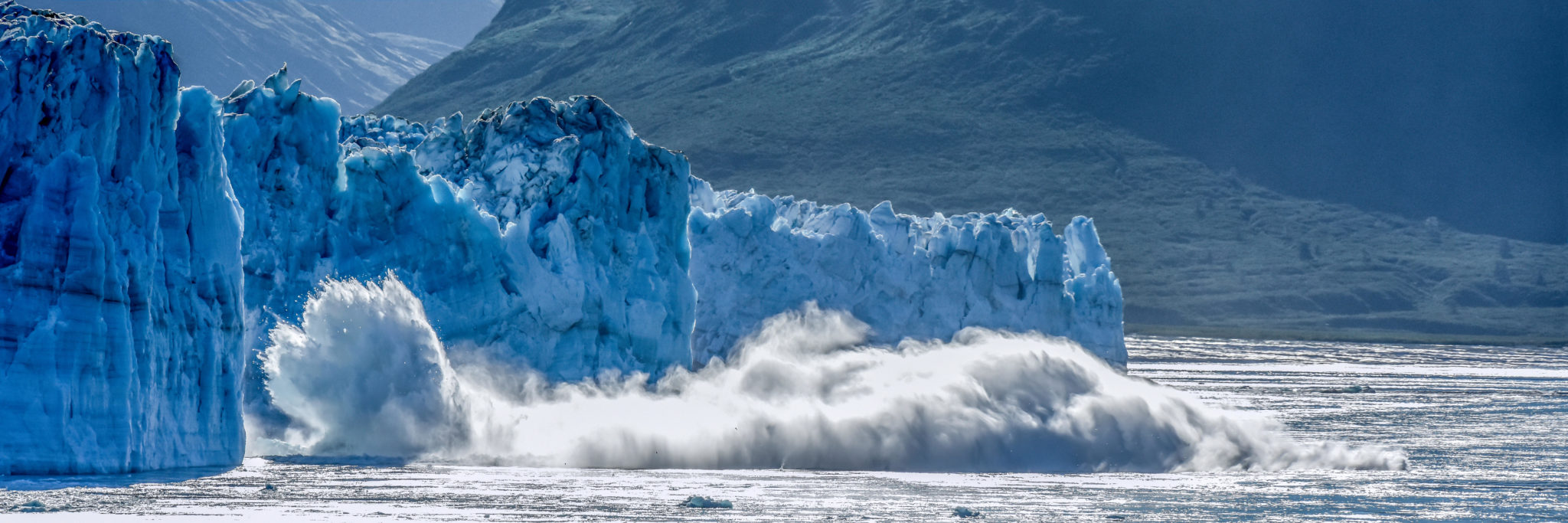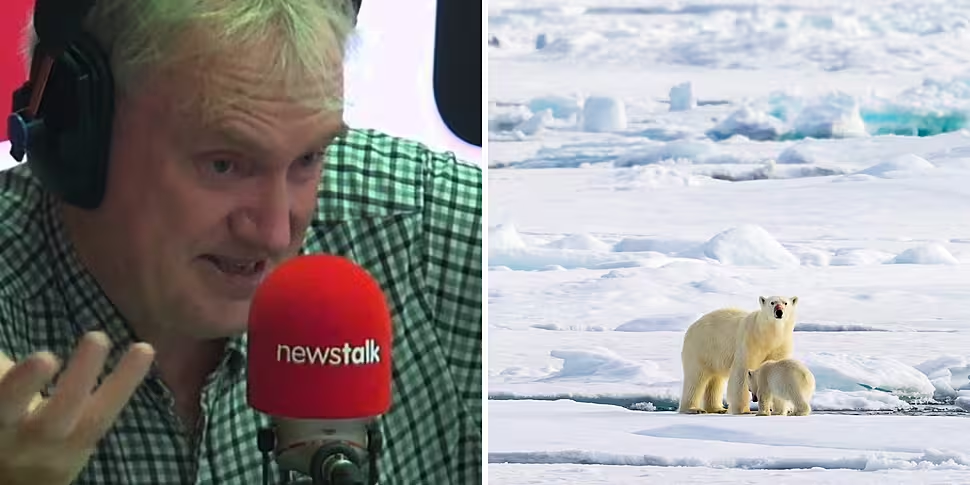A recent emergency statement from polar researchers has warned that climate change is causing rapid damage to Antarctica.
On the Show Me The Science podcast, Professor Luke O’Neill said melting ice in Antarctica could cause huge damage across the globe.
“The East Antarctic region holds enough water, if it all melted – get this – you would raise sea levels by 50 metres,” he said.
“Imagine if the sea levels rose by 50 metres, Ireland would be flooded.
“Not completely, but all the low-lying parts of Ireland – Dublin would be underwater.
“50 [metres] is a huge amount. Now, the chance of the whole ice sheet melting, that will take a lot of time for that to happen – but it is melting gradually.
“In the past 30 years, global sea levels have risen by about 10 centimetres, which is quite significant.”
 A melting iceberg calves - St. Elias Alaska - Yukon, Canada
A melting iceberg calves - St. Elias Alaska - Yukon, CanadaProf O’Neill said that the water from the melted ice could also affect ocean currents.
“What’s happening there is it’s fresh water, remember, that is trapped in the ice there,” he said.
“If you put more fresh water in the ocean, the ocean gets less salty.
"Now, you might think that shouldn’t make much of a difference - when you get a mouthful of water when you’re swimming you won’t notice it.
“But much more seriously, there’s many ocean currents that depend on the water being salty, and if it gets fresh, these ocean currents stop circulating.”
'Tipping point'
According to Prof O’Neill, the world is at a ‘tipping point’ when it comes to global warming.
“When you lose the ice in Antarctica, sunlight reflects less off the Earth you see, it gets more trapped,” he said.
“That contributes to the increasing temperature. You get this sort of domino effect, if you will, and they use this word tipping point.
“So, tipping points are almost there for the Barrier Reef and Antarctica, and they’ll get worse and worse, basically.
“Some of the predictions would be the next 30 to 40 years, it’ll die off more and more rapidly – and that’s a big concern.”
Prof O’Neill said we all need to accept the reality of climate change before it is too late.
Listen back here:
Featured image: Split image showing Luke O'Neill (L) and polar bears (R).









